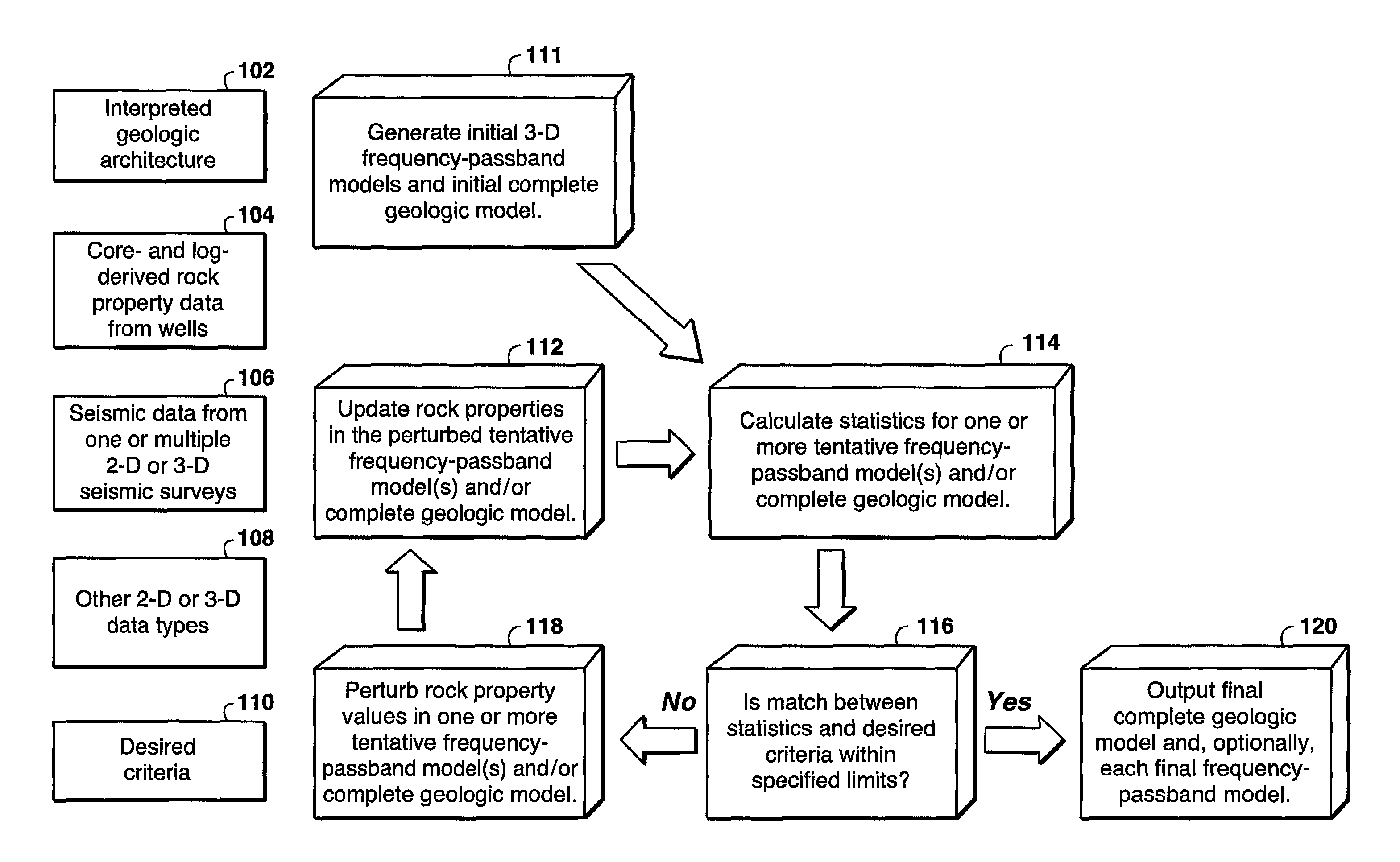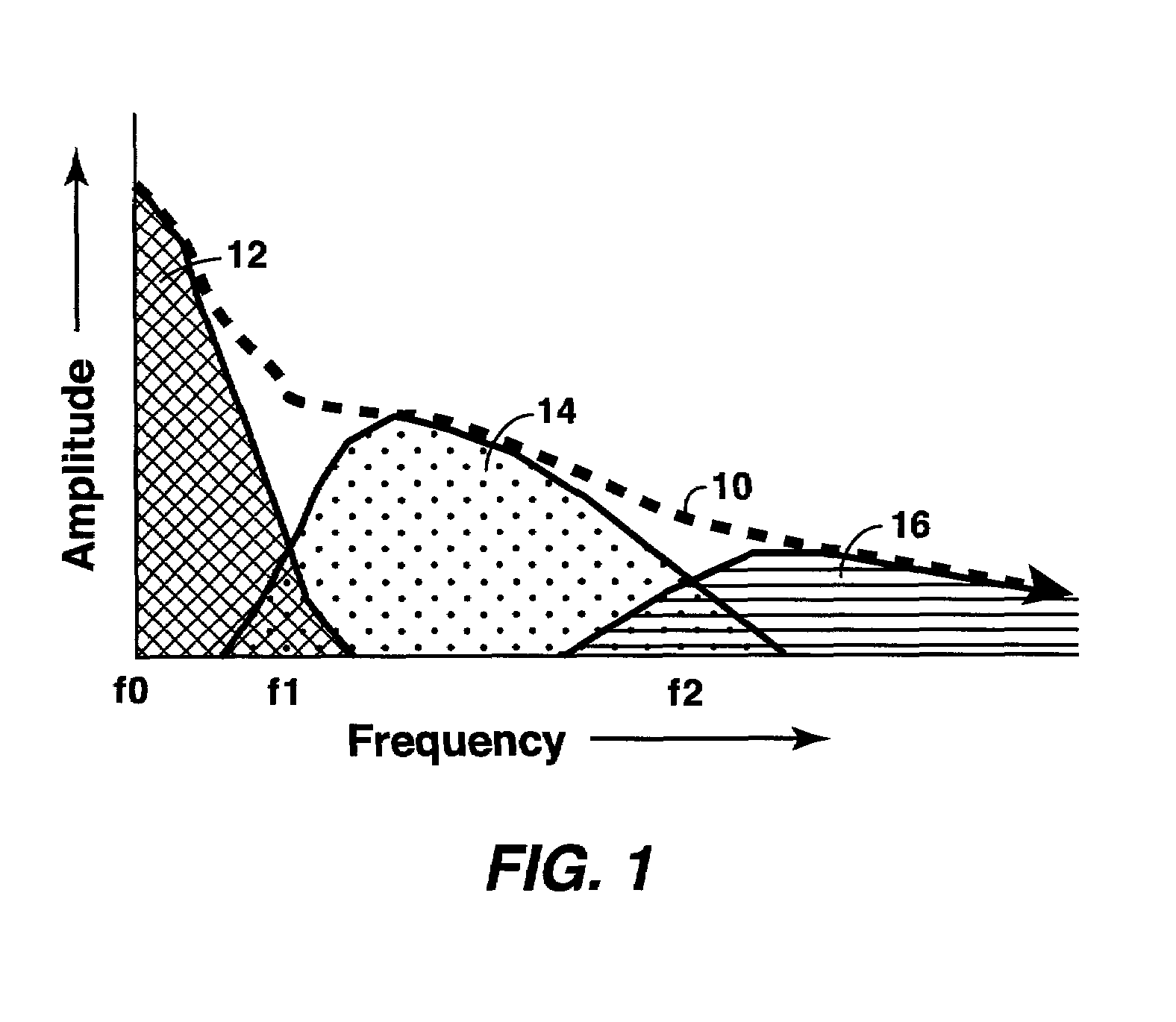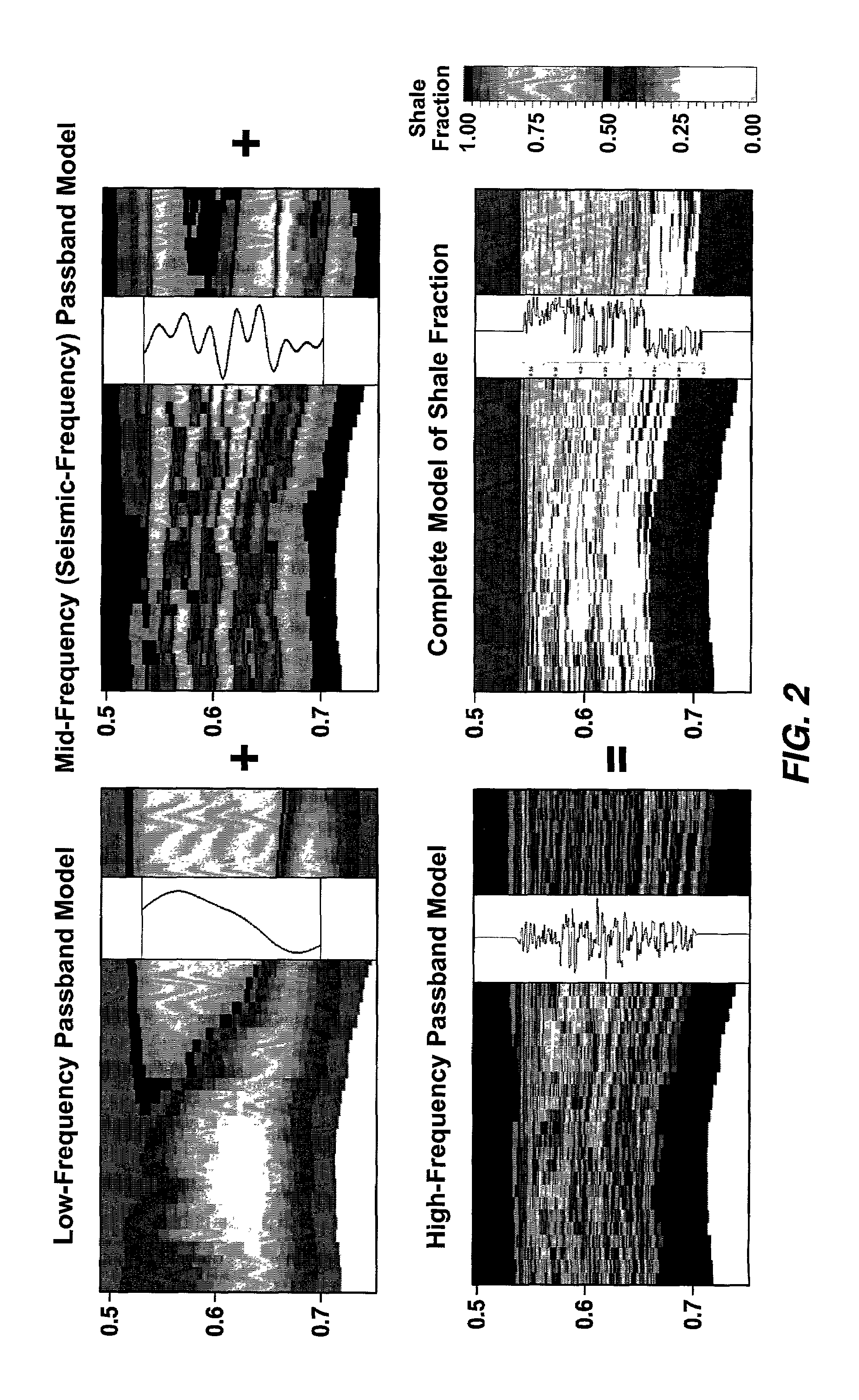Method for constructing 3-D geologic models by combining multiple frequency passbands
a geologic model and frequency passband technology, applied in the field of geologic modeling, can solve the problems of difficult to identify components that have a physical interpretation, difficult to identify components, and model perturbations in the frequency domain, and achieve the effect of greater accuracy
- Summary
- Abstract
- Description
- Claims
- Application Information
AI Technical Summary
Benefits of technology
Problems solved by technology
Method used
Image
Examples
Embodiment Construction
[0040]With reference to FIG. 3, the geologic modeling method of the present invention involves integrating different resolution-scale data types by constructing one or more initial frequency-passband models, combining these initial models to form an initial complete geologic model, and then optimizing one or more of these initial models to form the final complete geologic model. This is done using data which includes interpreted geologic architecture 102 that defines the limits of the model, regions within the model and stratigraphic correlations within the model, and desired criteria 110 that define the distributions and relations of rock properties in the complete geologic model and / or one or more of the individual frequency-passband models. Optionally, and desirably, several data types may be used in constructing the initial frequency passband models, including rock property data 104 derived from core and well logs, seismic data 106 derived from seismic surveys, and other data ty...
PUM
| Property | Measurement | Unit |
|---|---|---|
| seismic frequency | aaaaa | aaaaa |
| seismic frequency | aaaaa | aaaaa |
| seismic frequency | aaaaa | aaaaa |
Abstract
Description
Claims
Application Information
 Login to View More
Login to View More - R&D
- Intellectual Property
- Life Sciences
- Materials
- Tech Scout
- Unparalleled Data Quality
- Higher Quality Content
- 60% Fewer Hallucinations
Browse by: Latest US Patents, China's latest patents, Technical Efficacy Thesaurus, Application Domain, Technology Topic, Popular Technical Reports.
© 2025 PatSnap. All rights reserved.Legal|Privacy policy|Modern Slavery Act Transparency Statement|Sitemap|About US| Contact US: help@patsnap.com



